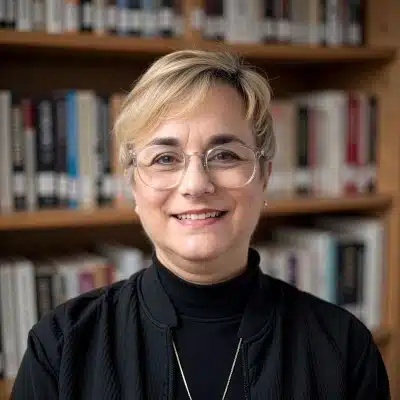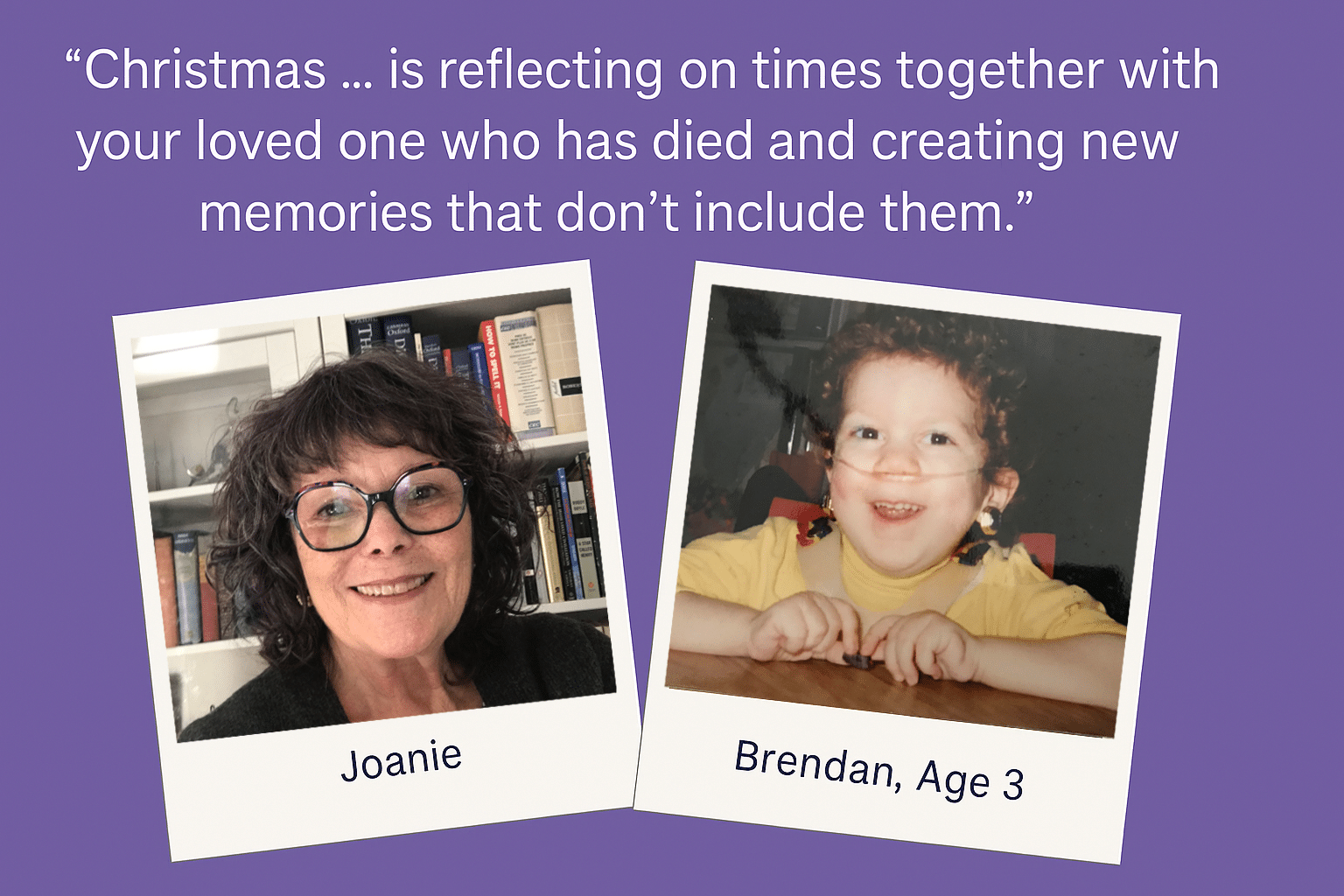Last month we had the honour of welcoming Maria Panzera Rugg, RN, BScN, MN, ACNP (Cert), CHPCN(C), CHE, to our team as Hospice and Palliative Care Nurse Educator.
In this blog post, Maria shares her reflections on her lifelong journey in palliative care, and what inspires her as she begins a new chapter with Life and Death Matters.
A Vow in the Dark: The Beginning of a Vocation
I often trace my journey in nursing back to one night in childhood. I was seven years old, admitted to hospital after breaking my leg. Alone in the dark and terrified, I cried quietly for my parents. A nurse leaned over and said words that still echo decades later: “Stop crying or your parents will never come.” At that moment, I promised myself that I would become the nurse that seven-year-old needed — and one day make a difference for people who are most vulnerable. That vow to my younger self became my vocation.
Thirty-Five Years of Nursing, Thirty in Palliative Care
Over the past thirty-five years in nursing, and thirty of those in palliative care, my career has spanned pediatric and adult care, psychosocial oncology, and supportive care. I began as a pediatric nurse and later as an Acute Care Nurse Practitioner, where I learned firsthand about resilience, family systems, and the importance of creating meaning even in the hardest circumstances. As a Clinical Nurse Specialist, I expanded into adult palliative care, where dignity, autonomy, and honouring each person’s definition of a “good death” became central lessons. These experiences across the lifespan taught me that while the needs of a child differ from those of an older adult, the essence of palliative care remains constant: presence, compassion, and bearing witness.
Leading Change: From Bedside to System Transformation
My path has also led into system-level leadership, education, and advancing excellence in care. At Trillium Health Partners, as Manager of Psychosocial Oncology & Supportive Care, I worked to integrate counselling, peer support, and spiritual care so families could find comfort in the midst of illness. At Cancer Care Ontario, and later Ontario Health, I had the privilege of helping to shape provincial standards and competencies to expand equitable access to palliative care. Internationally, I contributed to the development of pediatric palliative care standards with the National Hospice and Palliative Care Organization in the United States, ensuring evidence-based, compassionate care informs practice worldwide. Most recently, I supported the design and development of a new palliative care unit at a community hospital.
“Across all of these initiatives, what brings me the greatest pride is knowing they placed patients and families at the centre — whether by embedding psychosocial and supportive care as essential parts of the journey, or by ensuring that systems and standards reflected what mattered most to those living with serious illness.”
Collaboration at the Core
Leading and supporting interprofessional teams has been another defining thread in my career. In inpatient units, outpatient clinics, and consult services, I have seen the transformative power of collaboration when patients and families are truly at the centre. Effective teamwork requires more than professional expertise — it depends on mutual respect, psychological safety, and a shared vision rooted in what matters most to those we serve. When physicians, nurses, PSWs, social workers, volunteers, and spiritual care providers come together as equals, care becomes richer, more humane, and more responsive. That, to me, is the heart of palliative care.
Equity and Cultural Safety: Foundations of Quality Care
Equity and cultural safety have also guided my work. I believe cultural safety is not an “add-on” but the foundation of quality care. It begins with humility — listening, asking, and being willing to meet people where they are. It means being an ally, ensuring that those at greatest risk of exclusion can access what they need to live well while dying. It also requires us to recognize and challenge our own biases. At its heart, equity is about ensuring every person feels safe, respected, and valued in their care experience.
A New Chapter with Life and Death Matters
Now, I step into a new chapter with Life and Death Matters as a Hospice and Palliative Care Nurse Educator. What excites me most is the opportunity to engage with learners across long-term care, community, and acute settings, shaping how palliative care is taught and practiced. Education is a powerful tool for transformation. It not only builds skills but also shifts culture, helping teams see palliative care as essential, not peripheral. My hope is to co-create learning experiences that are practical, evidence-based, and deeply human — ensuring the next generation of healthcare providers approaches end-of-life care with confidence, compassion, and respect.
Looking Ahead: Continuity and Renewal
As I reflect on this journey, I return to that frightened seven-year-old child who made a vow in the dark. Today, I see a career built on keeping that promise — through clinical care, leadership, teaching, and system transformation.
“Looking ahead, I feel both continuity and renewal: continuity in the values that have guided me from the start, and renewal in the chance to pass those values on through education.”
To all who walk this path alongside me — patients, mentors, learners, colleagues, families, and communities — I invite you to hold onto this truth: palliative care is not about endings. It is about the courage to live and care fully, from the beginning of life to the end of life, and beyond.







One Response
Bravo María! You continue to make a difference to all who come in contact with you